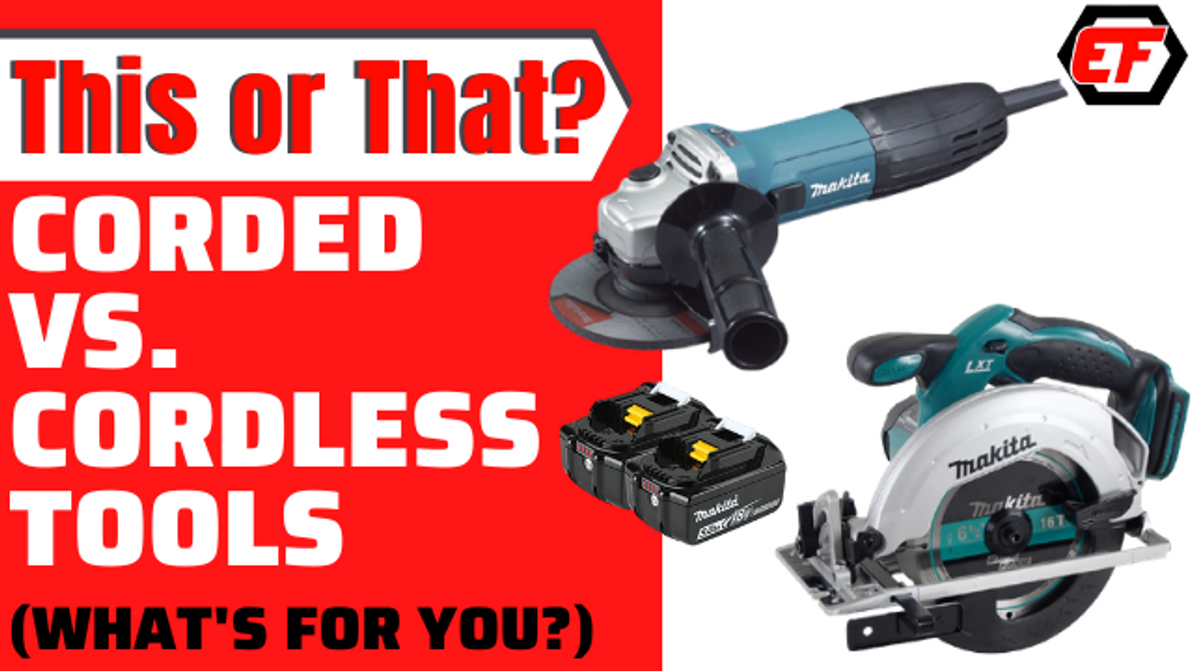Corded vs. Cordless Tools - What's For You?
When it comes to power tools, the debate between corded and cordless has been ongoing for years. Many people see corded tools as old-school, less convenient, and not as high-tech as their cordless counterparts. On the flip side, cordless tools are often seen as more modern, portable, and user-friendly. But is this perception accurate? It depends on your needs, the type of work you do, and how much power you really need.
While convenience is a big factor, there's more to consider than just ease of use. Reliability, power output, and long-term performance should also play a role in your decision. In this post, we'll break down the pros and cons of both corded and cordless power tools so you can make an informed choice based on your specific project requirements.
Corded Tools: Power with No Limits
The biggest advantage of corded tools is that they never run out of power—assuming you have access to electricity. This means consistent torque and performance, even during extended use. They’re ideal for heavy-duty tasks where power is key, such as construction or industrial applications. Plus, they typically don’t require battery replacements, which can save money over time.
However, corded tools come with some downsides. The main issue is mobility—your movement is limited by the length of the cord. If you're working in a remote area without an outlet, you might need an extension cord, which can be cumbersome. Also, managing cords can be messy, especially if you're working with multiple tools at once.
Cordless Tools: Freedom Without the Wires
Cordless tools offer unmatched portability. With no cords to worry about, you can take them anywhere—whether it’s a backyard project or a job site far from an electrical source. Modern batteries have improved significantly, offering longer run times and better charge retention. Some models even last weeks without needing a recharge, making them highly practical for occasional users.
That said, cordless tools do have their limitations. The biggest one is battery life. If you forget to charge your tool before a big job, you could be left stranded. Also, when the battery dies, you need to wait for it to recharge, which can slow down your workflow. However, these issues are becoming less common with advancements in battery technology.
Ultimately, the choice between corded and cordless tools depends on your specific needs. If you prioritize power and uninterrupted use, corded tools may be the way to go. If mobility and convenience are more important, then cordless tools might be the better fit.
Still unsure? Reach out to our team at Edmonton Fasteners—we’re here to help you choose the right tool for your next project.
